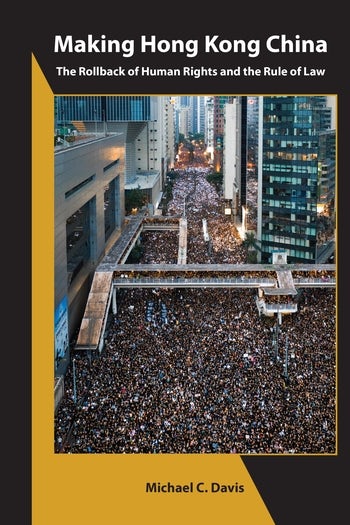Columbia University Press has
published a new book on the legal history of Hong Kong since 1997.
ABOUT THE BOOK
How can one of the world’s most
free-wheeling cities transition from a vibrant global center of culture and
finance into a subject of authoritarian control? As Beijing's anxious
interference has grown, the “one country, two systems” model China promised
Hong Kong has slowly drained away in the years since the 1997 handover. As “one
country” seemed set to gobble up “two systems," the people of Hong Kong
riveted the world’s attention in 2019 by defiantly demanding the autonomy, rule
of law and basic freedoms they were promised. In 2020, the new National
Security Law imposed by Beijing aimed to snuff out such resistance. Will the
Hong Kong so deeply held in the people’s identity and the world’s imagination
be lost? Professor Michael Davis, who has taught human rights and
constitutional law in this city for over three decades, and has been one of its
closest observers, takes us on this constitutional journey.
ABOUT THE AUTHOR
Professor Michael C. Davis is in
the Fall of 2020 a Visiting Professor in the Faculty of Law at the University
of Hong Kong where he teaches core courses on international human rights. He is
also currently a Global Fellow at the Woodrow Wilson International Center for
Scholars in Washington DC, a Senior Research Scholar at the Weatherhead East
Asia Institute at Columbia University and a Professor of Law and International
Affairs at O.P. Jindal Global University in India (where he is in residence
each spring). A professor in the Law Faculty at the University of Hong Kong
until late 2016, he has held a number of distinguished visiting professorships,
including the J. Landis Martin Visiting Professor of Human Rights Law at
Northwestern University (2005-6), the Robert and Marion Short Visiting
Professor of Human Rights at the University of Notre Dame (2004-5) and the
Frederick K. Cox Visiting Professor of Law at Case Western Reserve University
(2000).
More info here


No comments:
Post a Comment